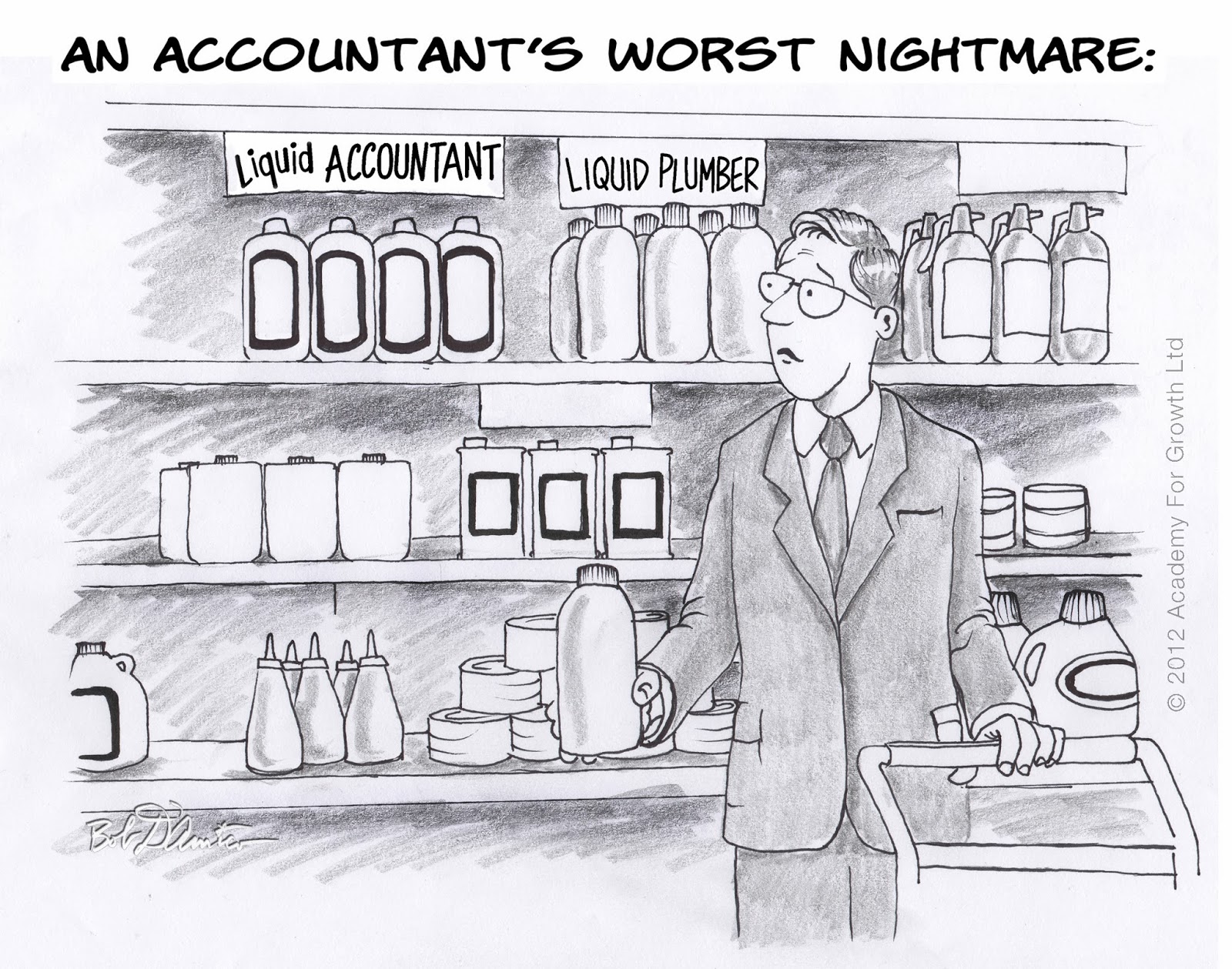 Choosing an accountant to work with you and your business may be one of the most important strategic
Choosing an accountant to work with you and your business may be one of the most important strategic decisions you encounter. The common mistake many entrepreneurs make in selecting (and maintaining) a professional accountant is the assumption that they all are the same. While it is true that a large portion of accounting firms are very similar in their approach and product offering, there are still firms out there that operate outside of the known stereotype. So, what is the difference?
Good question...
1) Most accounting firms work on the billable hours model of billing. This seems to be fair, yet scary at the same time. Although clients can be assured of the hourly rates of the work performed, often times the work cannot be properly estimated in terms of hours and the clients usually end up surprised at the time of the bill. Unfortunately, most of the time, the surprise is not a pleasant one. Unpredictable events or additional variations in the work can push the time spent on the project or engagement higher than expected. Even if you are dissatisfied with the work product, you still need to pay the bill.
To differentiate, some accounting firms work on the guaranteed pricing model (FIXED FEES). For example, our firm, CG Jones CGA of Rothesay NB guarantee in writing and in advance and mutually agreed upon, the set fee for the project or engagement. Regardless of the run over of time, their price is guaranteed. No surprises at billing time. The Fixed Fee guarantee is a welcomed relief to small and medium sized business owners. Also, if the work results are unsatisfactory, the client determines the fee.
Combine these guarantees with the monthly billing to free up cash flow, and you have a very significant difference.
2) Sometimes accounting firms will inadvertently miss deadlines. This happens (although it shouldn't). Often times, the responsibility seems to get diverted to the client because of late information coming in. This can be very costly for a business that is late on filing. Most reputable firms will accept responsibility and perhaps discount your bill or pay the interest on your late filing. Unfortunately, this is the exception, rather than the rule.
When selecting a firm to represent you and your interest, ask the question "What if" and see what their guarantee is if they miss a filing deadline. At CG Jones CGA, the guarantee extends beyond the typical assurances. With confidence of never missing a deadline, the firm backs up its promise with this guarantee taken from the website...
ALL DEADLINES MET OR WE GIVE YOU $250: Neither will you have to worry about key filing deadlines, because if in the very unlikely event we miss one, we’ll pay ALL of the fines AND give you $250 for the inconvenience.
Does that give you confidence of timely filing? It should because most people would not risk losing money, especially an accountant.
3) Typically, when a client needs advice or wants to run through a scenario with their accountant, they are reluctant to drop by or pick up the phone because they are not sure what it will cost them. Most accountants bill their time, usually in 6 minute intervals, therefore if the client needs an hour of their accountants time, they could burn a few hundred dollars. This causes clients to give a second thought before calling their accountant, or at least, they rush during their call or visit to minimize the costs. This can lead to improper information or making decisions without the input of a financial professional. Most think "Well that is just the cost of doing business". It doesn't have to be.
Another difference between typical accounting firms and the new breed of accounting firms is the all inclusive support service. Another guarantee of CG Jones CGA is the guarantee that all calls, emails, and meetings relating to your contracted service is free to you. Its all inclusive.
If you think all accountants are the same, please think again. We work hard at our firm to differentiate ourselves from other firms and we offer guarantees to stand 100 % behind our work. We are looking to revolutionize the relationship between businesses and their outside accountants. Your success is ours.
We offer a 90 minute free, no obligation meeting to go in to more details about the type of work we do and see if there is a fit between our prospects and ourselves. We know what it takes to create a win win partnership. Check out our Introduction Video and sign up for our no obligation meeting today.
Thanks for reading,
Gerard








